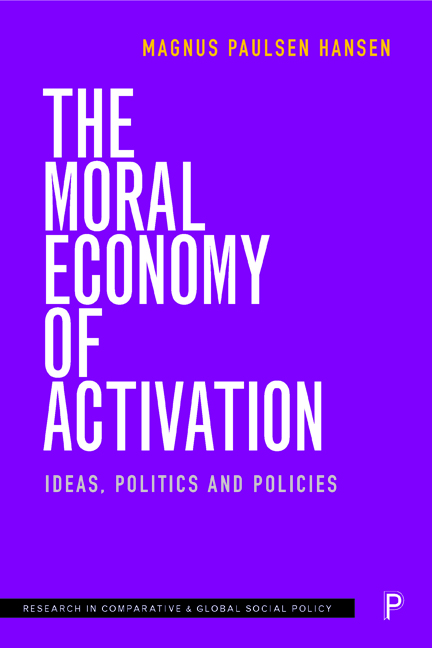1 - The Active Turn(s)
Published online by Cambridge University Press: 10 March 2021
Summary
Sanctions imposed on those who refuse a job within their qualifications are already better than a gradually decreasing allowance which punishes all the unemployed indifferently. And the instrument will make visible to the jobseeker that they often have capacities that they didn't expect. Regardless of personal preference for a profession, who knows whether the required qualities for practicing it are not similar to other professions? Who knows if a hairdresser would make a good assembly-line worker of electronic chips?
To me, making demands on people is a consequence of respecting them. The day we don't make demands, we don't respect people. And what is the alternative? That some of them get stuck and then we can meet again in 20 years and, once again, find a young woman near her 40s who has been sitting 18 years on benefits? That simply won't do.
Towards the active society
Since the late 1980s, a spectre has been haunting Europe and beyond, the spectre of what may be called the ‘active turn’. It transforms welfare states and labour market regulation gradually, but radically. Regardless of previous paths, be they Bismarckian, social democratic, residual or post-communist, welfare states, as well as their clients, are becoming increasingly ‘activated’. Policies representing such transformation have been given many labels, from ‘active social policies’ (Bonoli, 2013), ‘active labour market policies’ (Daguerre, 2007; Bonoli, 2010) and ‘activating labour market policies’ (Dingeldey, 2009), to ‘workfare’ (Jessop, 1993; Lødemel and Trickey, 2001; Peck, 2001), ‘welfareto-work’ (Dean, 2007) and ‘activation’ (Barbier, 2002; Barbier and Ludwig-Mayerhofer, 2004; Serrano Pascual, 2007; van Berkel et al, 2012).
Although the many labels expose a certain ambiguity in these transformations, what characterises all of them is a will to construct policies that somehow underpin a more ‘active society’, where ‘active’ usually entails paid work or activities such as jobseeking and training whose ultimate goal is paid work. The term derives from the late 1980s vision of the Organisation for Economic Co-operation and Development (OECD) vision of what kind of social policy it would take to bring its member states out of the economic downturn (Gass, 1988; OECD, 1989; see also Dean, 1995; Walters, 1997).
- Type
- Chapter
- Information
- The Moral Economy of ActivationIdeas, Politics and Policies, pp. 3 - 20Publisher: Bristol University PressPrint publication year: 2019

